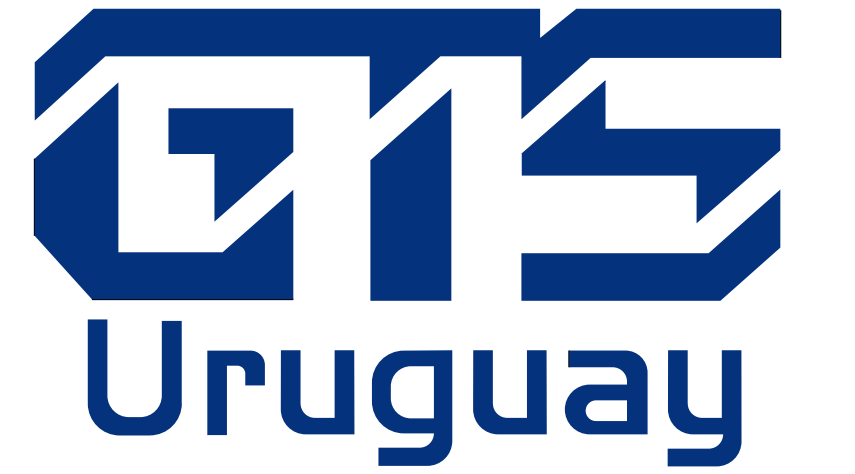| Comunicado BPS Nº 2/2024 – Servicios Personales – Vencimientos declaración jurada anual Fonasa
CALENDARIO DE VENCIMIENTOS 2024 – Declaración jurada anual Fonasa Se establecieron los plazos para los titulares de servicios personales profesionales y no profesionales, con actividades fuera de la relación de dependencia durante el 2023, que deben presentar la declaración jurada Fonasa por el ejercicio 2023. La presentación puede realizarse desde el 5/2/2024 y el plazo máximo para realizarlo sin multa, se determina según el último dígito del número de empresa, de acuerdo al siguiente detalle:
Se recuerda que, de presentarse fuera de los plazos establecidos, corresponde la aplicación de una multa de 1 UR. Se debe tener en cuenta que son requisitos para realizar la presentación de la declaración contar con usuario personal BPS y que los titulares de las empresas constituyan domicilio electrónico ante BPS. En el sitio web se encuentran disponibles información, instructivos y videos tutoriales para la presentación de la declaración jurada. Además, se pueden realizar consultas a través de un asistente en línea dentro de la funcionalidad en que se presenta la declaración. Por mayor información, puede comunicarse al 0800 2001, Asistencia al Contribuyente. Fuente: página web de BPS. |
Categoría: Sin categoría
RESUMEN ECONÓMICO | Enero 2024
TURISMO
– En 2023, Uruguay recibió 3.8 millones de turistas no residentes, un aumento del 55% respecto a 2022, aunque fue un 2.8% menos que el récord de 2017. Los turistas gastaron USD $1.776 millones, un 27% más que en 2022. Los argentinos lideraron con 1.6 millones de visitas y USD $801 millones en gastos, 10% más que en el año anterior. Los turistas brasileños aumentaron un 55% siendo un total de 593 mil brasileños, gastando USD $334 millones, un 21 % más.
En turismo emisivo, los uruguayos realizaron 4.8 millones de salidas, un aumento del 103%, gastando USD $1.962 millones, generando por primera vez déficit correspondiente a USD $186 millones en la balanza turística.
-El periódico estadounidense New York Times, seleccionó a la capital de Uruguay, Montevideo como uno de los 52 destinos para visitar en 2024. Dentro de los motivos se encuentra que se cumplen 300 años de la ciudad convirtiéndola en una oportunidad perfecta para conocer sus encantos. Recordemos que la prestigiosa consultora internacional MERCER en su ranking de “Calidad de vida” considerando 241 países, posicionó a Montevideo como la mejor ciudad de América Latina y el Caribe por su calidad de vida y pone el foco en aspectos como el medio ambiente y la sostenibilidad, además de la estabilidad política, sanidad, educación, infraestructura y entorno sociocultural.
– La Junta Departamental de Maldonado aprobó un proyecto hotelero en la playa de José Ignacio, respaldado por el empresario Diego Finkelstein. Dicho proyecto genera una polémica que se centra en la ubicación del establecimiento en un terreno de seis hectáreas entre la ruta 10 y el mar. Aunque administraciones anteriores aprobaron proyectos similares, hay preocupación por el impacto visual y la alteración paisajística, según declaraciones de los ediles. De todos modos, todavía es necesaria la autorización del Ministerio de Ambiente.
COTIZACIÓN
El dólar interbancario fondo cerró el 31 de Enero en $ 39,164. En la pizarra del Banco República, el billete verde cerro en $ 37,95 para la compra y $ 40,35 para la venta.
En lo que va del 2024, el dólar lleva una suba acumulada de 0,36% en comparación con la última cotización del mes anterior.
En Argentina, el billete verde en el mercado oficial continúo subiendo y cotizo AR$ 826.40 aumentando un 2,22%. Mientras tanto, el dólar blue (dólar paralelo) bajó y cotizó en el entorno de los $ 1.195,00 aumentando a lo largo del mes un 16,59%.
En Brasil, el dólar bajó y cerro en R$ 4,954 aumentando un 2,32% en total del mes de Enero.
El Euro bajó frente al dólar cotizando US$ 1.0825.
ÍNDICE DE PRECIOS AL PRODUCTOR DE PRODUCTOS NACIONALES
El IPPN de Enero 2024, registra una variación mensual del 1,33% y una variación acumulada en los últimos doce meses del -0,49%.
DÉFICIT FISCAL
El déficit fiscal fue del 3,3% del PIB en los últimos 12 meses hasta diciembre. Aunque disminuyó en el último trimestre con respecto al máximo alcanzado en septiembre, cerró el año 2023 en línea con la proyección gubernamental del 3,2%. Sin embargo, sigue siendo más alto que el 2,9% registrado en septiembre de 2022, que fue el mínimo durante esta administración.
Durante el tercer trimestre de este año, el Producto Bruto Interno (PBI) experimentó una ligera disminución del 0,2% en comparación con el mismo período del año anterior. Sin embargo, se observó un repunte del 1% en comparación con el trimestre anterior, indicando una recuperación económica a partir de mediados del año y superando los efectos negativos de la sequía.
Según los datos del Banco Central (BCU), la caída del PBI se atribuyó principalmente a la reducción en la generación de energía (-11,3%) y la disminución en la construcción (-8,6%) debido al cese de proyectos de la papelera finlandesa UPM.
Por otro lado, se destacó el rendimiento positivo en la actividad agropecuaria (+9,6%), impulsado por un aumento en la producción ganadera, mayores entregas de leche a las plantas y una mayor demanda de madera para fines industriales.
Las exportaciones disminuyeron (-9,2%) debido a menores ventas de soja, aunque se compensaron parcialmente con aumentos en las exportaciones de celulosa, carne bovina y ganado en pie. Los servicios exportados, especialmente en tecnologías de la información, también experimentaron una reducción.
En contraste, se observó un aumento en el consumo privado (+3,4%), influenciado por gastos en transporte para viajes al exterior, principalmente a Argentina, y la compra de bienes duraderos como automóviles.
En el trimestre anterior, la economía había sufrido una contracción del 2,5% debido a la histórica sequía que afectó al país.
INDICE DE PRECIOS DEL CONSUMO
El IPC disminuyó en diciembre un 0,11%, lo que llevó a que la inflación anual de 2023 se situara en un 5,11%, cumpliendo así con las expectativas establecidas por el gobierno y registrando su nivel más bajo desde 2005. La caída en diciembre se atribuye principalmente a los efectos del plan UTE Premia, aunque se registró un aumento significativo en el precio de frutas y verduras en el último mes del año, con incrementos del 6,9% y 2,3%, respectivamente.
Para este año, se proyecta un aumento del Índice de Precios al Consumo (IPC) de 4,9%, mientras que para el 2025, se espera que cierre en 5,3%. Ambos valores se encontrarían dentro del rango
TASA de POLÍTICA MONETARIA
El Banco Central del Uruguay (BCU) ha disminuido una vez más la Tasa de Política Monetaria (TPM) en 25 puntos básicos, estableciéndola en un 9%. Esta tasa alcanza su nivel más bajo desde 2005, y las expectativas respecto a este indicador se hallan en sus mínimos históricos, según declaraciones del BCU. El informe del banco indica que en el tercer trimestre del año, la actividad económica experimentó un crecimiento del 1,0% ajustado por estacionalidad, situándose un 0,2% por debajo del nivel registrado un año atrás. Sin embargo, las proyecciones a corto plazo sugieren que la economía seguirá expandiéndose en los próximos dos trimestres.
ECONOMÍA
-El Fondo Monetario Internacional (FMI) ha pronosticado que la economía global experimentará un «aterrizaje suave», con un crecimiento del 3,1% este año, superando las expectativas iniciales. En su revisión más reciente de las Perspectivas de la Economía Mundial, el FMI ajustó al alza la proyección de crecimiento global para 2024, pasando del 2,9% estimado en octubre a un 3,1%. La expectativa para 2025 se mantiene constante en un 3,2%. Este aumento se atribuye a una resistencia mayor de lo previsto en Estados Unidos, así como en varias economías de mercado emergentes y en desarrollo, incluyendo China.
–En 2023, la recaudación total bruta de la Dirección General Impositiva (DGI) disminuyó un 1,3% en términos reales respecto a 2022. Este declive se atribuye al menor dinamismo económico y consumo de los ciudadanos uruguayos, que también afectó a Argentina. La recaudación total de la DGI en el año alcanzó aproximadamente US$ 15.649 millones, con una caída del 1,6% en los tributos por consumo, una retracción del 4,4% en el IRAE (Impuesto a la Renta de las Actividades Económicas), y un aumento del 1,8% en el IRPF (Impuesto a la Renta de las Personas Físicas).
EMPLEO
-El Instituto Nacional de Estadística (INE) informó que en los últimos 12 meses hasta noviembre, el salario real aumentó en un 3,97%. Este incremento se atribuye al aumento del Índice Medio de Salarios (IMS), que aumentó un 9,13% en comparación con el mismo período del año anterior. Al considerar la inflación durante este lapso, que rondó cerca del 5%, se estima que el salario real promedio experimentó un incremento de casi el 4% en el último año móvil. Se observó un aumento promedio del salario real del 4,5% en el sector público y del 3,7% en el sector privado.
-En diciembre, la tasa de desempleo disminuyó en cinco décimas, alcanzando un 7,8% de la Población Económicamente Activa (PEA), lo que equivale aproximadamente a 146.000 personas desempleadas, según el Instituto Nacional de Estadística (INE). A su vez, hubo diferencias con lo que respecta al interior del país con Montevideo, teniendo el primero un porcentaje de desempleo de 8,6% mientras que en la capital corresponde a un 6,5%. Los datos obtenidos por la PEA se refleja en la tasa de actividad, que ascendió en una décima y se situó en un 63,8%. Además, la tasa de empleo, que indica el nivel de contrataciones, también experimentó un aumento, quedando en un 58,9% de la PEA.
-Durante el periodo comprendido entre septiembre y noviembre, se observó que los departamentos con los mayores índices de desempleo fueron: Río Negro, con un 13,5% de la Población Económicamente Activa (PEA); seguido por Artigas, que registró un 12,2%; Tacuarembó, con un 11,7%; y Rocha, con un 11,4%. Estos datos, que revelan la situación laboral por zonas geográficas, fueron publicados recientemente por el Instituto Nacional de Estadística (INE). En cuanto a Montevideo, la proporción de individuos en edad laboral que buscan empleo se ubicó en un 7,9%. Por otro lado, se observó que los departamentos con las tasas más bajas de desocupación fueron: Colonia, con un 4%; seguido por Florida y Lavalleja, ambos con un 6,8%.
-El ingreso promedio real de los hogares experimentó un incremento del 2,8% en 2023 en comparación con el año anterior, marcando así el tercer año consecutivo de crecimiento anual. En relación con el promedio registrado en 2019, previo a la pandemia, este indicador se sitúa ligeramente más de un 1% por encima. Según el reporte del Instituto Nacional de Estadística, el Ingreso Medio de los Hogares para el conjunto del país alcanzó los $89.283 en el cuarto trimestre del año, mientras que el Ingreso Medio per cápita se estimó en $31.650.
-En 2023, el Índice Medio de Salarios aumentó un 4,01% en términos reales, colocando los salarios promedio ajustados por inflación un 1,9% por encima de los niveles de diciembre de 2019. El poder adquisitivo de los trabajadores públicos creció un 4,23%, mientras que para los empleados del sector privado fue del 3,88%. Los sectores con los mayores aumentos interanuales fueron Actividades Inmobiliarias (4,7%), Construcción (4,6%), Enseñanza (4,5%) y Transporte (4,4%).
-El Índice Medio de Salarios Nominal reveló un aumento definitivo del 8,68% en jubilaciones y pensiones, tras un ajuste provisorio del 8,39% aplicado a principios de año. Este incremento, que incluye un 0,29% pendiente del ajuste provisorio de enero, marca el segundo año consecutivo de ganancia de poder adquisitivo para las jubilaciones. En 2023, la inflación fue del 5,11%, situando la corrección del 8,68% a más de tres puntos por encima de la evolución de los precios. Hasta 2019, las pasividades aumentaron por encima de la inflación durante 14 años, pero en los tres años siguientes, los ajustes fueron inferiores, resultando en una pérdida de poder adquisitivo para estas prestaciones.
ARGENTINA
El Gobierno Argenino logró concretar un nuevo pacto con el Fondo Monetario Internacional (FMI) cuyo propósito principal consistió en reactivar el programa establecido durante la administración de Alberto Fernández, con el objetivo de que el organismo desbloquee fondos por un monto de USD $4700 millones.
Se pretende implementar medidas de ajuste significativas, que abarcarían la reducción de gastos, la suspensión de proyectos de infraestructura pública y el incremento de impuestos. Todo ello se lleva a cabo con vistas a cumplir con las nuevas metas establecidas, que comprenden un superávit primario del 2% para el año 2024 y la acumulación de reservas netas por un total de USD $10.000 millones, con el fin de lograr estabilidad en el ámbito económico.
ADMINISTRACIÓN NACIONAL PORTUARIA
-En 2023, la terminal portuaria de Montevideo alcanzó un récord al manejar 1.120.000 TEUs, representando un hito significativo en el movimiento de contenedores. La meta de la Administración Nacional Portuaria es exceder la cantidad de TEUs del año previo y llegar a los 3.000.000 en el 2024. Para lograrlo, se está llevando a cabo la ampliación de la terminal especializada en contenedores, un proyecto que inició en septiembre de 2023 y se espera que esté finalizado durante el primer semestre de 2024. Esta expansión requerirá una inversión de más de 600 millones de dólares, según indicaron.
-El Banco Interamericano de Desarrollo (BID), a través de su sector BID Invest, proporcionará un préstamo de US$ 103 millones al consorcio Terminal Cuenca del Plata (TCP) para financiar la expansión del Puerto de Montevideo. Las mejoras incluyen la construcción de un segundo muelle de 730 metros y la ampliación de la playa de contenedores. Se espera que estos proyectos se completen en 2026, triplicando la capacidad del puerto a 2,3 millones de TEUS y permitiendo la atención simultánea de hasta cuatro buques. Además del préstamo del BID, se asegurará financiamiento adicional de US$ 340 millones provenientes de bancos comerciales con el respaldo de la Agencia de Crédito a la Exportación de Bélgica.
-El Puerto de Nueva Palmira experimentó un significativo aumento en la movilidad de mercancías el año pasado, principalmente impulsado por la nueva operativa de tráfico de mineral de hierro desde Brasil, que resultó en la movilización de más de 350,000 toneladas. A pesar de la disminución en las exportaciones de soja debido a la sequía, el tráfico de otros productos y la inclusión del mineral de hierro contribuyeron a un incremento sustancial en la actividad portuaria en 2023. Las proyecciones comerciales estiman más de 3 millones de toneladas de este tipo de carga para este año. Este aumento se espera que fortalezca la posición del puerto, amplíe la captación de cargas regionales y genere un impacto económico significativo en la zona, con los ingresos destinados a inversiones en infraestructura portuaria en 2024.
UTE
El año pasado, el 91,2% de la energía generada en Uruguay provino de fuentes renovables. El informe del SEG basado en los datos de UTE señala que el 44,5% de esta energía fue generada mediante turbinas eólicas. En contraste, la producción hidroeléctrica disminuyó a niveles mínimos registrados en al menos veinte años, representando el 32% del total generado, debido a la reciente crisis hídrica. El análisis del informe muestra que entre 2004 y 2009, la energía hidroeléctrica constituía el 76% de la matriz energética del país.
En el mismo período, la biomasa representó el 10,7%, mientras que la energía solar tuvo un aporte del 3,8%. Respecto a las fuentes no renovables, el 8,8% de la generación provino de energía térmica.
BROU
El Banco República finalizó el año 2023 con utilidades alcanzando los USD $600 millones, marcando así el mejor desempeño anual en términos de resultados en toda su historia, según afirmó Salvador Ferrer, su presidente. Este logro se atribuye en parte al aumento de las tasas a nivel internacional. Además, anticipó que se espera que el BROU aporte alrededor de USD $ 500 millones anuales a Rentas Generales, considerando dividendos e impuestos. Esto equivaldría a unos USD $2.500 millones en el periodo, una cifra significativamente mayor que la registrada en los cinco años anteriores.
EXPORTACIÓN
– Durante el mes de enero las exportaciones de bienes uruguayos aumentaron un 8% con respecto al mismo mes del año pasado correspondiente a USD $917 millones. Las mayores exportaciones fueron de trigo, carne bovina, malta y subproductos cárnicos. Sin embargo, la colza tuvo una reducción considerable lo cual hizo que amortiguara el incremento de las ventas. Con lo que respecta a los países de exportación, Brasil ocupó el primer lugar del ranking en enero con un total exportado de 22% seguido por China con el 13% y Estados Unidos con el 9%. Sugerimos la lectura del artículo con mayor información detallada publicado en nuestra web (Continuar Leyendo)
EMPRESAS
-En noviembre, la producción de la industria manufacturera aumentó un 2,4% respecto al mismo mes del año anterior, con un incremento del 8,8% al excluir la refinería de petróleo en tareas de mantenimiento. Según el informe de Cinve, las principales ramas industriales en Zonas Francas, como Pepsi y las plantas de celulosa, registraron incrementos interanuales significativos. El núcleo industrial, excluyendo estas ramas y la refinería de ANCAP, creció un 2,7%, marcando el segundo aumento mensual tras ocho meses contractivos. En los últimos 12 meses, la producción industrial aumentó un 1,4% hasta noviembre de 2023.
– Para la zafra de cultivos 2023-2024, la superficie total sembrada en invierno se estima en 607,246 hectáreas, mostrando una reducción del 30% en comparación con la zafra anterior. Según datos del Ministerio de Ganadería, Agricultura y Pesca, la producción de trigo se proyecta en 1,343,772 toneladas, un 5% más que en la zafra anterior, alcanzando un máximo histórico en el país. La superficie cultivada con colza y carinata en esta zafra fue de 132,000 hectáreas, con un rendimiento promedio de 1,596 kilogramos por hectárea. La disminución en la superficie de colza se atribuye a bajos precios y pérdidas por heladas, lo que llevó a la resiembra con otros cultivos como trigo y cebada.
-El Gobierno uruguayo autorizó a Amazon a expandir su red de internet satelital en el país y a instalar una estación terrena fija. La Unidad Reguladora de Servicios de Comunicaciones (Ursec) emitió una resolución concediendo a Amazon una licencia de telecomunicaciones clase C para ofrecer servicios de facilidades satelitales y de transporte a licenciatarios de telecomunicaciones, limitando la venta directa a usuarios individuales. Amazon tiene 30 días para abonar aproximadamente USD$ 440,000 por la licencia y 15 meses para realizar las instalaciones necesarias en Uruguay. La iniciativa, conocida como Project Kuiper, busca proporcionar internet rápido y asequible en áreas sin acceso a servicios tradicionales, compitiendo a nivel mundial con proyectos como Starlink de Elon Musk.
Fuentes: BCU, DGI, GUB.UY, INE, BROU
URUGUAY: Comercio Exterior a Enero 2024
Nuestro país alcanzó solicitudes de exportación en enero de 2024 por USD 917 Millones lo que representa un incremento del 8% respecto al mismo mes del año anterior.
La mayor demanda externa de trigo, carne bovina, malta y subproductos cárnicos explican el incremento del mes. Sin embargo, la colza (por menor área sembrada y heladas), el arroz y los productos lácteos, tuvieron una reducción significativa con respecto a sus ventas interanuales.
El crecimiento de enero 2024 respecto al año anterior se explica por rubros así: carne bovina fue el producto más exportado en el mes (las ventas en enero alcanzaron USD 176 MM frente a USD 131 MM del año anterior representando un aumento de 34%), celulosa (exportaciones de enero por USD 174 MM con aumento interanual del 3%), trigo con ventas por USD 63 MM con un aumento respecto al año anterior de 308%), concentrados de bebidas (exportaciones totalizaron 55 MM lo que significó un aumento del 19%) y arroz (exportaciones totalizaron 37 MM con una disminución del -25% respecto al año anterior)
La carne de res fue el principal producto exportado en el mes, registrando un crecimiento del 34%. Este aumento se atribuyó principalmente a mayores volúmenes de exportación, ya que los precios se mantuvieron estables interanualmente. Las ventas experimentaron un destacado incremento en los mercados de Estados Unidos e Israel, que se posicionaron como el segundo y tercer destino más importante para la carne de res en enero.
Los principales destinos en enero 2024 fueron: Brasil (USD 173 MM con productos como malta, carne bovina, lácteos y vehículos representando el 22% del total exportado del mes), China (USD 100 MM representando el 13% del total), USA (USD 70 MM representando el 9% del total, siendo el principal producto la carne bovina que representó el 60% de las ventas a ese mercado y los subproductos cárnico el 17% del total exportado), Unión Europea (USD 49 MM representando el 6% del total, siendo la carne bovina la que representa el 50% de las ventas), y Argentina (USD 26 MM representando solo el 3% del total, disminuyendo un 20% en comparación con el año pasado).
Arenceles pagados por las exportaciones Uruguayas de bienes.
Uruguay desembolsó USD 528 millones en aranceles vinculados a las exportaciones de bienes en 2022. Este incremento se atribuye al récord en el valor de las exportaciones, principalmente de productos agropecuarios, que enfrentan tasas arancelarias más altas.
El 32% de las exportaciones se realiza bajo acuerdos comerciales, llegando al 58% con productos sujetos a arancel cero o productos con ingresos por cuotas. Los bienes agropecuarios, como carne bovina y productos lácteos, enfrentan los aranceles más elevados. La carne bovina lidera en pagos de aranceles con USD 306 millones, representando el 60% del total. Otros sectores afectados incluyen el lácteo y la soja.
Uruguay goza de acceso preferencial en la mitad de los principales 20 destinos de exportación, siendo el Mercosur responsable del 26% de las exportaciones y generando un ahorro estimado de USD 376 millones en aranceles. Excluyendo al Mercosur, los aranceles son más altos en destinos clave como China, la Unión Europea y Estados Unidos, que constituyen el 71% del total de aranceles pagados en 2022.
China representa el 48% de los pagos por aranceles, destacando que el 80% de las exportaciones a China paga aranceles. La Unión Europea aporta el 14% de los aranceles, mientras que Estados Unidos registra un aumento a USD 46 millones, principalmente debido a la carne bovina.
En otros países como Argelia, Reino Unido y Turquía también se pagaron aranceles asociados a productos agropecuarios.
Información obtenida vía URUGUAY XXI
URUGUAY: Comercio Exterior Anual 2023
Nuestro país alcanzó solicitudes de exportación en diciembre de 2023 por USD 950 Millones lo que representa una disminución del 6.6% respecto al mismo mes del año anterior. La menor demanda externa se explica por el magro crecimiento de las economías desarrolladas, la menor demanda de China y la disminución de precio de los commodities junto con los factores ya precedentes de la sequía.
En el acumulado del año 2023, las exportaciones alcanzaron los USD 11.518 Millones representando una disminución del 13% en la comparación interanual colocándose como el segundo año con exportaciones de mayor valor en la última década. Las colocaciones de soja y carne bovina disminuyeron considerablemente, mientras que las de ganado en pie y celulosa tuvieron incidencia positiva.
El informe anual de comercio exterior del 2023 muestra una disminución en las exportaciones a lo largo del año, con caídas mensuales interanuales en la mayoría de los meses, a excepción de enero, octubre y noviembre. En diciembre de 2023, las exportaciones desde las zonas francas se redujeron a USD 950 millones, un 7% menos que en 2022.
Se destaca que Uruguay enfrentó una sequía sin precedentes hasta finales de 2023, provocando pérdidas en la producción agropecuaria estimadas en USD 1.883 millones, equivalente al 3% del PIB, según la Oficina de Programación y Política Agropecuaria (OPYPA).
La carne bovina fue el producto más exportado en el 2023 (las ventas en este año alcanzaron USD 2.081 MM es decir, 19% menos que el año anterior representando una disminución significativa), celulosa (exportaciones fueron por USD 2.019 MM con aumento interanual del 7%), lácteos (cerraron el año con USD 818 MM, siendo un -7% que el año anterior), concentrados de bebidas (exportaciones totalizaron USD 739 MM lo que significó un aumento del 9%) y arroz (exportaciones totalizaron 616 MM con un aumento significativo del 23% respecto al año anterior)
En cuanto a las exportaciones de carne bovina, los volúmenes exportados disminuyeron 4% mientras que los precios cayeron 15%. China fue el destino del 48% de las exportaciones del 2023. En el caso de la celulosa que se posiciona además como el segundo producto de exportación de 2023, los precios de exportación disminuyeron en el último año, si bien los volúmenes se incrementaron considerablemente por el inicio de la producción de la segunda planta de UPM desde mayo 2023. La celulosa será seguramente el principal rubro de exportación de Uruguay para 2024.
Los principales destinos en 2023 fueron: China (USD 2.510 MM representando el 22% del total a pesar de haber tenido una disminución de exportación de un -33% en comparación con el 2022, habiendo disminuido drásticamente las ventas de soja y carne bovina y incrementando la cantidad de exportaciones de celulosa), Brasil (USD 2.185 MM representando el 19% del total, con productos lácteos siendo el mayor rubro exportado y generando un aumento de 68%, seguido por el arroz que duplicó sus cantidades con respecto al 2022 y trigo que tuvo un aumento de un 89%), Unión Europea (USD 1.850 MM representando el 16% del total , siendo celulosa la que representa el 46% de las ventas, seguido por carne bovina, colza y carinata), USA (USD 873 MM representando el 8% del total, y un aumento de un 11% con respecto al 2022, siendo el principal producto la carne bovina que representó el 41% de las ventas a ese mercado y un 20% los subproductos carnicos ), y Argentina (USD 595 MM representando solo el 5% del total, disminuyendo un 47% en comparación con el año pasado siendo los principales productos autopartes, vehículos y celulosa).
Las exportaciones de servicios se vuelven cada vez más significativas en la cesta exportadora de Uruguay. Según el Banco Central del Uruguay (BCU), en el año hasta septiembre de 2023, las exportaciones de servicios alcanzaron los US$ 6.074 millones, mostrando un aumento del 19% en comparación con el año anterior. Esta alza se atribuyó principalmente a la recuperación de servicios tradicionales, destacándose el repunte del turismo que totalizó US$ 2.417 millones, mientras que las exportaciones de transporte cayeron a US$ 513 millones.
Por otro lado, las exportaciones de servicios no tradicionales tuvieron un ligero crecimiento, contribuyendo positivamente al aumento general de las ventas de servicios al extranjero, sumando US$ 3.144 millones hasta septiembre de 2023, principalmente lideradas por servicios globales (US$ 3.023 millones). El incremento de las exportaciones de servicios globales fue generalizado en distintos sectores, con mayor énfasis en las ventas de servicios informáticos, que mostraron un aumento significativo desde la segunda mitad de 2021, alcanzando los US$ 1.036 millones en el año analizado. En contraste, las exportaciones de servicios profesionales y de consultoría, el principal rubro en las exportaciones de servicios globales, descendieron y sumaron US$ 1.295 millones en el período evaluado.
En el año 2023, las importaciones de bienes, excluyendo petróleo, sus derivados y energía, totalizaron USD 10.614 millones, experimentando una disminución del 2% en comparación con el año anterior, 2022.
Fuente: URUGUAY XXI
CALENDARIO VENCIMIENTOS BPS 2024
Difundimos el Calendario de Vencimientos 2024 ante BPS para el pago de aportes ante el organismo.
En caso de consultas o comentarios adicionales, comunicarse con el equipo profesional directivo de GTS URUGUAY quienes están especializados en liquidación de remuneraciones, y estarán a disposición para atender cualquier consulta laboral que necesite.
Calendario de Vencimientos DGI 2024
Difundimos el Calendario de Vencimientos 2024 de DGI según lo establecido por la Resolución No. 2669/2023 de dicho organismo.
Establécense los siguientes Cuadros de Vencimientos por el período Enero Diciembre 2024 según los correspondientes grupos de sujetos pasivos:
1. ENTES AUTÓNOMOS y SERVICIOS DESCENTRALIZADOS
Se regirán por el siguiente cuadro, sin perjuicio de lo establecido en los ordinales 11, 18 y 20.
| E | F | M | A | M | J | J | A | S | O | N | D |
| 22 | 22 | 21 | 23 | 22 | 24 | 22 | 22 | 23 | 22 | 22 | 23 |
2. CEDE (Incluso aquellos gestionados por la División Grandes Contribuyentes), sin perjuicio de lo establecido en los ordinales 18 y 20.
Presentación de Declaración Jurada y plazo para el pago:
|
Dígitos |
E |
F |
M |
A |
M |
J |
J |
A |
S |
O |
N |
D |
|
TODOS |
22 | 22 | 21 | 23 | 22 | 24 | 22 | 22 | 23 | 22 | 22 | 23 |
Presentación de declaración jurada: por Internet o dependencias de la DGI en aquellos casos en que no existan programas de ayuda disponibles.
3. NO CEDE, sin perjuicio de lo establecido en los ordinales 18 y 20.
Presentación de Declaración Jurada y plazo para el pago:
|
Dígitos |
E |
F |
M |
A |
M |
J |
J |
A |
S |
O |
N |
D |
|
TODOS |
25 | 26 | 21 | 25 | 27 | 25 | 25 | 26 | 25 | 25 | 25 | 26 |
Presentación de declaración jurada: por Internet o en medios magnéticos en los locales de las redes de cobranza habilitadas o dependencias de la DGI en aquellos casos en que no existan programas de ayuda disponibles.
Pago: electrónicamente vía Internet o a través de redes de cobranza habilitadas, sin perjuicio de lo dispuesto en el ordinal 27.
4. IVA Mínimo.
| Mes | Días de 2024 |
| Diciembre 2023 | 22 de enero |
| Enero 2024 | 20 de febrero |
| Febrero 2025 | 20 de marzo |
| Marzo 2024 | 23 de abril |
| Abril 2024 | 20 de mayo |
| Mayo 2024 | 20 de junio |
| Junio 2024 | 22 de julio |
| Julio 2024 | 20 de agosto |
| Agosto 2024 | 20 de setiembre |
| Setiembre 2024 | 21 de octubre |
| Octubre 2024 | 20 de noviembre |
| Noviembre 2024 | 20 de diciembre |
Pago: electrónicamente vía Internet o a través de redes de cobranza habilitadas, sin perjuicio de lo dispuesto en el ordinal 27.
5. Servicios Personales fuera de la relación de dependencia: IVA/IRPF pagos a cuenta.
| Bimestre | Días de 2023 |
| Noviembre – Diciembre 2023 | 25 de enero |
| Enero – Febrero 2024 | 21 de marzo |
| Marzo – Abril 2024 | 27 de mayo |
| Mayo – Junio 2024 | 25 de julio |
| Julio – Agosto 2024 | 25 de setiembre |
| Setiembre – Octubre 2024 | 25 de noviembre |
Pago: electrónicamente vía Internet o a través de redes de cobranza habilitadas, sin perjuicio de lo dispuesto en el ordinal 27.
6. Productores y Corredores de Seguros.
Los pagos a cuenta del IRPF correspondientes a las rentas que obtengan los corredores y productores de seguros, deberán efectuarse de acuerdo al siguiente cuadro:
| Bimestre IRPF | Días de 2024 |
| Noviembre – Diciembre 2023 | 25 de enero |
| Enero – Febrero 2024 | 21 de marzo |
| Marzo – Abril 2024 | 27 de mayo |
| Mayo – Junio 2024 | 25 de julio |
| Julio – Agosto 2024 | 25 de setiembre |
| Setiembre – Octubre 2024 | 25 de noviembre |
La presentación de la declaración jurada del IRPF del ejercicio correspondiente al 31/12/2023, se realizará de acuerdo al ordinal 16.
Los productores y corredores de seguros contribuyentes del IRPF dispondrán de plazo hasta el 22 de febrero de 2024, para efectuar el pago del saldo del Impuesto al Valor Agregado del ejercicio cerrado al 31/12/2023.
Los corredores y productores de seguros contribuyentes del IRAE deberán efectuar los pagos de tributos y presentar las declaraciones juradas correspondientes, en los plazos y condiciones establecidos en los ordinales 2 y 3, según el grupo al que pertenezcan.
Pago: electrónicamente vía Internet o a través de redes de cobranza habilitadas, sin perjuicio de lo dispuesto en el ordinal 27.
7. IVA Servicios personales presentación de la declaración jurada.
La presentación de la declaración jurada de IVA servicios personales se realizará en los plazos establecidos en el ordinal 16, por Internet, o en medios magnéticos en los locales de las redes de cobranza habilitadas o dependencias de la DGI.
8. IMPUESTO AL PATRIMONIO personas físicas, núcleos familiares y sucesiones indivisas. Saldo de IRPF sucesiones indivisas.
Contribuyentes comprendidos en el literal A) del artículo 1º del Título 14 del Texto Ordenado 1996 y/o en el segundo inciso del literal B) del mismo artículo por el patrimonio afectado indirectamente a explotaciones agropecuarias.
| Saldo IP y su sobretasa, IRPF sucesiones indivisas | 16 de mayo de 2024 |
| Declaración jurada IP y su sobretasa, año 2023 | 17 de mayo de 2024 |
| Primer pago a cuenta IP y su sobretasa, año 2024 | 23 de setiembre de 2024 |
| Segundo pago a cuenta IP y su sobretasa, año 2024 | 21 de octubre de 2024 |
| Tercer pago a cuenta IP y su sobretasa, año 2023 | 23 de diciembre de 2024 |
| Artículo 6º Decreto Nº 30/015 saldo IP y su sobretasa y declaración jurada 2023 | 14 de febrero de 2024 |
| Artículo 6º Decreto Nº 30/015 anticipo IP y su sobretasa 80% a cuenta año 2024 | 23 de diciembre de 2024 |
Presentación de declaración jurada del Impuesto al Patrimonio y su sobretasa: por Internet, o en medios magnéticos en los locales de las redes de cobranza habilitadas o dependencias de la DGI.
Las sucesiones que actúen como responsables sustitutos presentarán la declaración jurada correspondiente en medios magnéticos en los locales de las redes de cobranza habilitadas o en dependencias de la DGI, de acuerdo a los plazos establecidos en el ordinal 24.
Pago: electrónicamente vía Internet o a través de redes de cobranza habilitadas, sin perjuicio de lo dispuesto en el ordinal 27.
9. AGROPECUARIOS – Unidades Económico Administrativas
Las unidades económico administrativas dispondrán de plazo hasta el 16 de setiembre de 2024, para presentar la declaración jurada dispuesta en el artículo 28 del Decreto Nº 30/015 de 16 de enero de 2015.
Presentación de Declaración Jurada: por Internet, o en medios magnéticos en los locales de redes de cobranza habilitadas o en dependencias de la DGI.
10. IMESI – NUMERAL 9)
| Mes | Días de 2024 |
| Diciembre 2023 | 11 de enero |
| Enero 2024 | 14 de febrero |
| Febrero 2024 | 11 de marzo |
| Marzo 2024 | 11 de abril |
| Abril 2024 | 13 de mayo |
| Mayo 2024 | 11 de junio |
| Junio 2024 | 11 de julio |
| Julio 2024 | 12 de agosto |
| Agosto 2024 | 11 de setiembre |
| Setiembre 2024 | 11 de octubre |
| Octubre 2024 | 11 de noviembre |
| Noviembre 2024 | 11 de diciembre |
11. ANCAP
| Mes | Días de 2024 |
| Noviembre 2023 | 12 de enero |
| Diciembre 2023 | 15 de febrero |
| Enero 2024 | 12 de marzo |
| Febrero 2024 | 12 de abril |
| Marzo 2024 | 14 de mayo |
| Abril 2024 | 12 de junio |
| Mayo 2024 | 12 de julio |
| Junio 2024 | 13 de agosto |
| Julio 2024 | 13 de setiembre |
| Agosto 2024 | 14 de octubre |
| Setiembre 2024 | 12 de noviembre |
| Octubre 2024 | 12 de diciembre |
12. IRNR: Responsables.
Los responsables del IRNR presentarán declaración jurada y verterán los importes retenidos, en los plazos y condiciones establecidos en los ordinales 1, 2, y 3, según el grupo al que pertenezcan.
13. IRNR: Pagos a cuenta, excepto contribuyentes comprendidos en el ordinal 15.
Los contribuyentes comprendidos en el artículo 25 del Decreto Nº 149/007 de 26 de abril de 2007, deberán realizar los pagos a cuenta del impuesto de acuerdo al cuadro de vencimientos establecido en el ordinal 22.
Pago: electrónicamente vía Internet o a través de redes de cobranza habilitadas, sin perjuicio de lo dispuesto en el ordinal 27.
14. IRNR/Impuesto al Patrimonio: entidades no residentes que no actúen mediante establecimiento permanente.
Las entidades no residentes que no actúen mediante establecimiento permanente dispondrán de plazo hasta el 15 de mayo de 2024 para presentar la declaración jurada y efectuar el pago del saldo del IRNR y del Impuesto al Patrimonio, por el ejercicio cerrado al 31/12/2023.
Presentación de las declaraciones juradas: por Internet, o en medios magnéticos en los locales de redes de cobranza abilitadas o dependencias de la DGI.
Pago: electrónicamente vía Internet o a través de redes de cobranza habilitadas, sin perjuicio de lo dispuesto en el ordinal 27.
15. IRNR/Impuesto al Patrimonio/IVA: entidades no residentes que no actúen mediante establecimiento permanente (artículos 21 bis y 21 ter Decreto Nº 149/007 de 26 de abril de 2007).
IRNR/IVA: Pagos a cuenta e información relacionada
| Trimestre | Días de 2024 |
| Octubre – Diciembre 2023 | 22 de enero |
| Enero-marzo 2024 | 23 de abril |
| Abril-junio 2024 | 22 de julio |
| Julio-setiembre 2024 | 22 de octubre |
Pagos: electrónicamente vía Internet.
Presentación de las declaraciones juradas: en el plazo y condiciones establecidos en el ordinal 14.
Las entidades no residentes que no actúen mediante establecimiento permanente, y realicen actividades comprendidas en los artículos 21 bis y 21 ter del Decreto Nº 149/007 de 26 de abril de 2007; efectuarán el pago del saldo del Impuesto al Patrimonio, por el ejercicio cerrado al 31/12/2023, en el plazo establecido en el ordinal 14.
A los efectos de este ordinal, los pagos se considerarán realizados en la fecha en que acaece su acreditación en la correspondiente cuenta de esta Administración.
16. IRPF/IASS: presentación de la declaración jurada y pago de saldo
La presentación de la declaración jurada se realizará de acuerdo con el siguiente cuadro:
ÚItimo dígito RUC, C.I. o N.I.E. según corresponda: Todos
Días de 2024: 8 de Julio al 29 de Agosto
Los contribuyentes del IRPF y del IASS, podrán efectuar el pago del saldo del ejercicio correspondiente al 31 de diciembre de 2023 en 5 cuotas iguales de acuerdo al siguiente cuadro de vencimientos:
| 1era. cuota | 30 de agosto de 2024 |
| 2da. cuota | 30 de setiembre de 2024 |
| 3era. cuota | 30 de octubre de 2024 |
| 4ta. cuota | 29 de noviembre de 2024 |
| 5ta. cuota | 30 de diciembre de 2024 |
Pago: electrónicamente vía Internet o a través de redes de cobranza habilitadas, sin perjuicio de lo dispuesto en el ordinal 27.
17. IRPF: Categoría I – responsables.
Los responsables designados por los artículos 36 (Arrendamientos y otros rendimientos del capital inmobiliario), 39 (Rendimientos del capital mobiliario) excepto los del literal h) y 43 (Rematadores por transmisión de bienes muebles), del Decreto Nº 148/007 de 26 de abril de 2007, presentarán la declaración jurada y verterán el importe retenido en los plazos y condiciones establecidos en los ordinales 1, 2, y 3, según el grupo al que pertenezcan.
Los responsables designados por el literal h) del artículo 39 del Decreto Nº 148/007 de 26 de abril de 2007, presentarán la declaración jurada por Internet o en medios magnéticos, en los locales de redes de cobranza habilitadas o dependencias de la DGI y efectuarán el pago electrónicamente vía Internet o en dichas redes de cobranza habilitadas, sin perjuicio de lo dispuesto en el ordinal 27; de acuerdo con el siguiente cuadro:
| Ultimo Dígito | Días de 2024 |
| 0 – 1 – 2 – 3 | 7 de mayo |
| 4 – 5 – 6 | 10 de mayo |
| 7 – 8 – 9 | 15 de mayo |
18. IRPF: Categoría II – responsables sustitutos artículo 62 Decreto Nº 148/007- declaración jurada y pago.
Los responsables sustitutos designados por el artículo 62 del Decreto Nº 148/007 de 26 de abril de 2007, verterán la retención efectuada, en las redes de cobranza habilitadas o electrónicamente vía Internet, en las fechas establecidas en el siguiente cuadro de vencimientos:
| Dígitos | E | F | M | A | M | J | J | A | S | O | N | D |
| TODOS | 22 | 23 | 21 | 19 | 22 | 24 | 22 | 21 | 20 | 21 | 21 | 20 |
Las Instituciones de Asistencia Médica Colectiva que pagan las contribuciones especiales de seguridad social a través del mecanismo de compensación de créditos, dispondrán del siguiente cuadro de vencimientos, a los efectos de realizar el pago y presentar la declaración jurada a que refiere el artículo 65 del Decreto Nº 148/007 de 26 de abril de 2007:
| E | F | M | A | M | J | J | A | S | O | N | D |
| 25 | 26 | 22 | 25 | 27 | 25 | 25 | 26 | 25 | 25 | 25 | 26 |
19. IRPF: Categoría II – responsables por obligaciones tributarias de terceros – declaración jurada y pago.
Los responsables designados por el artículo 73º del Decreto Nº 148/007 de 26 de abril de 2007 (Responsables por obligaciones tributarias de terceros), presentarán la Declaración Jurada prevista en el inciso segundo del numeral 30º de la Resolución Nº 662/2007 de 29 de junio de 2007, y verterán las retenciones en los plazos y condiciones establecidos en los ordinales 1, 2, y 3, según el grupo al que pertenezcan.
20. IRPF: Categoría II – restantes responsables – declaración jurada y pago.
Los responsables designados en los artículos 66º (Cooperativas), 67º (Afiliados activos a otras instituciones previsionales), 69º (AFAPs) y en el segundo inciso del 71º (Caja de Jubilaciones y Pensiones Bancarias), del Decreto Nº 148/007 de 26 de abril de 2007, y en los numerales 41) (Empleadores usuarios de zona franca), 42) (Subsidios por inactividad compensada), 43) (Construcción), 45) (Pagos a ex – empleados y familiares), 45) bis (Cajas de auxilio o seguros convencionales) y 46) (Retiros incentivados), de la Resolución Nº 662/2007 de 29 de junio de 2007, excepto los casos comprendidos en el artículo 62º del referido Decreto, presentarán la declaración jurada y verterán la retención en los siguientes plazos:
| Dígitos | E | F | M | A | M | J | J | A | S | O | N | D |
| TODOS | 22 | 23 | 21 | 19 | 22 | 24 | 22 | 21 | 20 | 21 | 21 | 20 |
Presentación de declaración jurada: por Internet o en medios magnéticos en los locales de las redes de cobranza habilitadas o dependencias de la DGI en aquellos casos en que no existan programas de ayuda disponibles.
Pago: electrónicamente vía Internet o a través de redes de cobranza habilitadas, sin perjuicio de lo dispuesto en el ordinal 27.
21. IASS: responsables sustitutos – declaración jurada y pago
Los responsables sustitutos designados en el artículo 10º del Decreto Nº 344/008 de 16 de julio de 2008, presentarán la declaración jurada y verterán la retención en los plazos y condiciones establecidos en los ordinales 1, 2 y 3, según el grupo al que pertenezcan.
22. IRPF: Pagos a cuenta arrendamientos de inmuebles e incrementos patrimoniales.
| Mes | Días de 2024 |
| Diciembre 2023 | 25 de enero |
| Enero 2024 | 26 de febrero |
| Febrero 2024 | 21 de marzo |
| Marzo 2024 | 25 de abril |
| Abril 2024 | 27 de mayo |
| Mayo 2024 | 25 de junio |
| Junio 2024 | 25 de julio |
| Julio 2024 | 26 de agosto |
| Agosto 2024 | 25 de setiembre |
| Setiembre 2024 | 25 de octubre |
| Octubre 2024 | 25 de noviembre |
| Noviembre 2024 | 26 de diciembre |
Pago: electrónicamente vía Internet o a través de redes de cobranza habilitadas, sin perjuicio de lo dispuesto en el ordinal 27.
23. IRPF/IRNR: Retenciones arrendamientos de inmuebles – Entidades en Régimen de Atribución de Rentas.
Los responsables designados por el numeral 16 bis de la Resolución Nº 662/007 de 29 de junio de 2007, verterán las retenciones en los plazos y condiciones establecidos en los ordinales 1, 2, y 3, según el grupo al que pertenezcan.
24. IRPF/IRNR: Entidades en Régimen de Atribución de Rentas – declaración jurada.
| Último Dígito | Días de 2024 |
| 0-1-2-3 | 6 de marzo |
| 4-5-6 | 11 de marzo |
| 7-8-9 | 14 de marzo |
Presentación de declaración jurada: por Internet o en medios magnéticos en los locales de las redes de cobranza habilitadas o dependencias de la DGI.
25. IRPF/IVA: Agentes de Retención – Comisiones de Apoyo de las Unidades Ejecutoras del MSP.
Las Comisiones de Apoyo de las Unidades Ejecutoras del Ministerio de Salud Pública presentarán la declaración jurada correspondiente y verterán el IRPF y el IVA, de acuerdo al siguiente cuadro:
| E | F | M | A | M | J | J | A | S | O | N | D |
| 25 | 26 | 21 | 25 | 27 | 25 | 25 | 26 | 25 | 25 | 25 | 26 |
26. IMPUESTO DE ENSEÑANZA PRIMARIA.
– Por inmuebles rurales afectados directa o indirectamente a explotaciones agropecuarias
Presentación de declaración jurada establecida en el numeral 1º) de la Resolución Nº 9495/017 de 12 de diciembre de 2017: por Internet o en medios magnéticos en los locales de las redes de cobranza habilitadas, hasta el 29 de abril de 2024.
Pago: electrónicamente vía Internet o a través de redes de cobranza habilitadas, sin perjuicio de lo dispuesto en el ordinal 27.
| 1era. cuota | 31 de mayo de 2024 |
| 2da. cuota | 30 de agosto de 2024 |
| 3era. cuota | 31 de octubre de 2024 |
– Por inmuebles urbanos, suburbanos y rurales sin explotación agropecuaria:
Pago: electrónicamente vía Internet o a través de redes de cobranza habilitadas.
| 1era. cuota | Entre el 2 de enero y el 31 de mayo de 2024 |
| 2da. cuota | Entre el 2 de julio y el 30 de agosto de 2024 |
| 3era. cuota | Entre el 12 de setiembre y el 31 de octubre de 2024 |
27. PAGOS CON CERTIFICADOS DE CRÉDITO.
Los pagos efectuados utilizando total o parcialmente certificados de crédito (no electrónicos), serán realizados exclusivamente en:
– Dependencias de la Dirección General Impositiva
– Dependencias del Banco de Previsión Social cuando se cancelen obligaciones por Contribuciones Especiales a la Seguridad Social (Certificados D o E), o por IRPF cuando actúe como entidad colaboradora en la recaudación (Certificados A, B o C).
Los pagos efectuados utilizando total o parcialmente certificados de crédito electrónicos se regirán por lo dispuesto en la Resolución Nº 3906/014 de 30 de octubre de 2014.
28. CUADRO RESIDUAL DE VENCIMIENTOS:
| Días de 2024 |
| 25 de enero |
| 26 de febrero |
| 21 de marzo |
| 25 de abril |
| 27 de mayo |
| 25 de junio |
| 25 de julio |
| 26 de agosto |
| 25 de setiembre |
| 25 de octubre |
| 25 de noviembre |
| 26 de diciembre |
Comenzó la temporada de cruceros
Esta semana arribó a las costas de la capital del país, el primer crucero una vez pasado el invierno.
Según datos aportados por CLIA (Cruise Line International Association), Uruguay tendrá en esta temporada 229 desembarques siendo 155 en Montevideo y 74 para Punta del Este. Estos datos implican un incremento de alrededor de 15% en las escalas de Cruceros en comparación con la temporada pasada, que ya había sido estimada como la mejor de los últimos ocho años en Uruguay.
Google avanzará en la construcción de un centro de datos globales en Uruguay
Una vez que se obtengan las habilitaciones necesarias, la empresa tiene planes de construir el centro de datos proyectado para Uruguay. Esto demuestra la confianza que Google tiene en el país y su intención de aumentar sus inversiones.
En la reunión llevada a cabo el martes 31 de octubre en la Torre Ejecutiva, las representantes de Google Eleonora Rabinovich y Tamar Colodenco anunciaron que la empresa ha presentado el Estudio de Impacto Ambiental y el Documento de Proyecto, como parte del proceso para obtener la Autorización Ambiental Previa. Esto forma parte de los planes de Google, que incluyen aumentar el tamaño del centro de datos y adoptar un nuevo sistema de enfriamiento por aire.
Con esta acción, Google se une al cable submarino Firmina, también propiedad de la empresa, que conectará Punta del Este con la costa este de Estados Unidos. Estas iniciativas consolidan a Uruguay como un destino atractivo para grandes compañías tecnológicas y refuerzan su posición como centro de innovación y tecnología en la región y a nivel global.
Además, esta situación coloca a Uruguay en una posición privilegiada para aprovechar las oportunidades de inversión en el campo del almacenamiento de datos, impulsado por el desarrollo de la Inteligencia Artificial, el Internet de las Cosas y el análisis masivo de datos.
Fuente: Presidencia (gub.uy)
Estamos seleccionando CONTADORES PÚBLICOS
Si eres Contador Público y te gustaría trabajar en una firma de profesionales… ¡Te Estamos Buscando! para integrarte al puesto de CONTADOR/A SENIOR y también CONTADOR/A SEMI-SENIOR en nuestro equipo de trabajo.
Te ofrecemos:
- Buen ambiente laboral.
- Un ambiente dinámico y abierto a nuevos desafíos
- Régimen hibrido de trabajo de Lunes a Viernes en horario completo.
- Agradable lugar de trabajo en nuestras oficinas en la zona de WTC Montevideo y Montevideo Shopping.
- Ampliar y profundizar tus conocimientos para que puedas desarrollarte como profesional.
Ofrecemos a quienes aspiren a crecer profesionalmente, integrarse a una firma con más de 20 años de trayectoria, que es miembro de redes profesionales internacionales e incorporarse a un calificado equipo de profesionales que realiza actividades tanto para clientes internacionales como nacionales.
Entre las tareas principales realizarás:
- Contabilidad y preparación de estados financieros
- Liquidación de impuestos y presentación de declaraciones juradas
- Liquidación de remuneraciones
- Apoyar y supervisar a Asistentes Contables
Requisitos:
- Experiencia mínima de 3 años en tareas similares para CONTADOR/A SEMI-SENIOR y no menor a 5 años para CONTADOR/A SENIOR
- Se valorarán conocimientos de idioma inglés.
- Se valorará experiencias previas en Estudios Contables.
- Personas productivas y con habilidad para trabajar en equipo
Si te interesa la propuesta postúlate enviando tus aspiraciones salariales y CV a: rrhh@gts.com.uy
La presente convocatoria incluye a todas las personas sin distinción al amparo de la Ley 19.691
Situación de IT en Uruguay
Porqué desarrollarse en IT en Uruguay?
Además de las exoneraciones impositivas existentes tanto para el desarrollo de ciertas actividades de IT cuyo aprovechamiento es en el exterior, como también a los servicios de soportes lógicos desarrollados en Uruguay en el marco de la nueva ley de exoneración del software, se agregan:
- Por distancias, idioma, historial de negocios, cultura compartida y acuerdos comerciales, Uruguay tiene ventajas para la localización de headquarters regionales y centros de servicios compartidos
- La afinidad cultural con Europa y Norteamérica, un huso horario intermedio y los altos estándares en telecomunicaciones
Compartimos video elaborado por Uruguay XXI que aporta mayores detalles al respecto, y colocamos a disposición por consultas a nuestros Asesores Fiscales especializados en beneficios impositivos y oportunidades para grupos extranjeros en nuestro país.
Para conocer también la realidad del sector IT en Uruguay, compartimos el Informe Anual del Sector IT de 2019 elaborado por la Cámara Uruguaya de Tecnologías de la Información (CUTI) en Diciembre 2020.
Sabías que el sector IT es el cuarto producto exportable del Uruguay detrás de la carne, celulosa y soja y representa 3,4% del PIB?
Cual es el principal país de destino de las exportaciones y su crecimiento respecto al año anterior?
Cuantos puestos de trabajo ocupa el sector?
Infome Anual del Sector IT Diciembre 2020
También compartimos el link al último informe del Sector IT preparado por la agencia estatal URUGUAY XXI por lo que sugerimos la lectura del mismo en este link: Sector TIC en Uruguay – Julio 2021
Por último, compartimos el último informe trimestral del sector IT preparado por la CUTI









